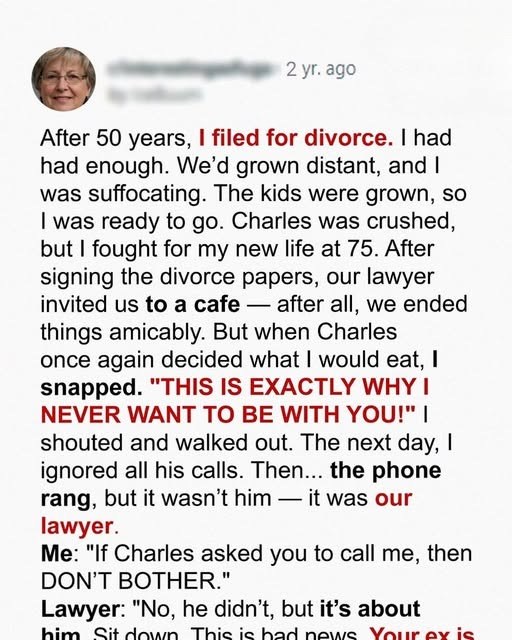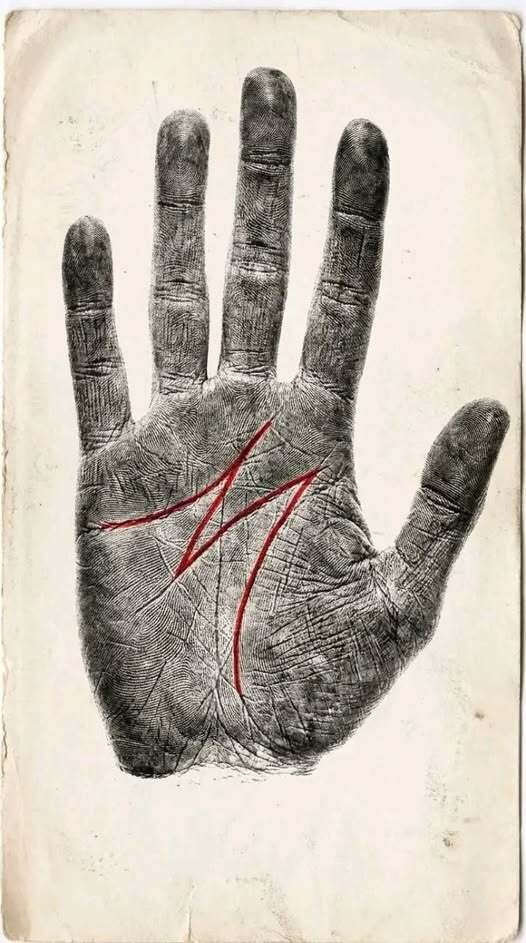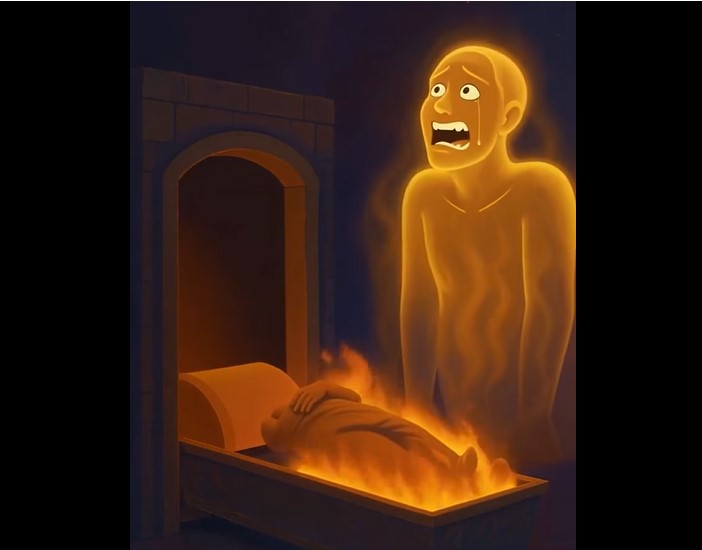After 50 Years Together, She Made a Life-Changing Choice — and Learned a Painful Truth
Rose and Charles shared what many saw as a picture-perfect marriage—over five decades bound together by love, family, and countless cherished memories. They raised two children, built a warm home filled with laughter, and celebrated milestone anniversaries that seemed to affirm their devotion. To friends and relatives, their relationship appeared unshakable, a living testament to commitment and endurance.
Yet beneath that polished surface, Rose’s heart began to stir with unease. At seventy-five, she found herself questioning the life she had so carefully upheld. Decades of compromise, once accepted as part of marriage, had left her feeling muted. Where she once saw comfort, she now felt confinement. Everyday disagreements with Charles seemed to cut deeper, turning conversations into silence, and small frustrations into quiet tears. She longed to reclaim a voice she feared had been lost in the rhythm of routine.
One evening, burdened by an overwhelming desire for freedom and self-discovery, Rose did the unthinkable. She turned to Charles, her partner of a lifetime, and asked for a divorce. The words landed like a storm, shaking the foundation of their shared life. Charles, though devastated, received her decision with a quiet dignity that mirrored the love he still carried. His heart broke, but he refused to stand in her way. If independence was what she sought, he would honor her wish.
The legal process unfolded with painful swiftness, dividing a life that had been intertwined for more than fifty years. When the paperwork was finally complete, their lawyer, sensing the gravity of their parting, suggested one last dinner together. The idea was bittersweet: a farewell meal at the same restaurant where they had once toasted anniversaries.
Charles, ever thoughtful, did his best to make the evening gentle for Rose. He dimmed the lights at their table, knowing her eyes had grown sensitive. He ordered her favorite salad, remembering details that only decades of love could preserve. But for Rose, those gestures—once sources of comfort—now felt stifling. She misread his kindness as control, interpreting his consideration as yet another cage around her independence. Overwhelmed by frustration, she left the dinner early, unaware of the quiet ache etched across Charles’s face.
That night, alone in the silence of his study, Charles reached for pen and paper. He poured his heart into a letter that blended love, sorrow, and hope. In his words, he confessed his pain but also his enduring affection, assuring Rose that above all, he wished for her happiness. It was a farewell, but also a reminder of the love that had defined their lives. When he was finished, he left the letter behind, trusting that one day she would find it.
Tragedy struck the next morning. Charles suffered a sudden heart attack. Rose, shaken and disoriented, rushed to the hospital only to face the reality that time had run cruelly short. Returning home in despair, she discovered the letter waiting for her. As she read his words, tears blurred the ink until the paper was damp with grief. In that moment, clarity pierced her confusion. What she had so often perceived as control had always been love expressed through care, attentiveness, and small acts of devotion.
At the hospital, Rose clasped Charles’s hand and whispered through her tears, begging forgiveness. Though his eyes remained closed, she felt an unspoken reconciliation. Their love, tested and strained, found a second life in that moment—a renewal born from regret, reflection, and the rediscovery of devotion that had never truly left them.






Post Comment